Cain and Mabel

Brief Synopsis
Cast & Crew
Lloyd Bacon
Marion Davies
Clark Gable
Allen Jenkins
Roscoe Karns
Walter Catlett
Film Details
Technical Specs

Synopsis
When unemployed reporter Aloysius K. Reilly causes waitress Mabel O'Dare to lose her job, he decides to find her another one. Learning that Mabel can dance a little, he claims to know producer Jake Sherman, convinced that he can talk Jake into giving her a job in the chorus of his new production. Jake doesn't know Reilly and is just about to throw him and Mabel out of the rehearsal when Toddy Williams, the star, walks out of the show. For revenge, Jake casts Mabel in the lead even though she isn't a very good dancer. The night before her opening, she is still practicing her routine, and the noise she makes keeps her downstairs neighbor, boxer Larry Cain, awake. Because he has a big boxing match the next day, Larry asks Mabel to quit, but she refuses, and they quarrel. Larry wins the championship, but his lack of charisma in the ring keeps the crowds away. Mabel's show is doing poorly, until Reilly has the bright idea of concocting a romance between Mabel and Larry. Although they really hate each other, the publicity about their phony affair has the desired result. They continue to battle until Larry discovers that Mabel used to be a waitress. He confesses that his dream is to retire to New Jersey and run a garage. They decide to marry and fulfill Larry's dream. Overhearing their plans, Reilly plots to prevent the elopement. He leaks the story to the papers, and Mabel and Larry each think the other has betrayed the secret. When Mabel finally learns the truth, she flies to Philadelphia where Larry is fighting. Larry loses the match, but Mabel's bet on the other fighter provides a nest egg for their future.

Director

Lloyd Bacon
Cast

Marion Davies

Clark Gable

Allen Jenkins
Roscoe Karns

Walter Catlett

David Carlyle
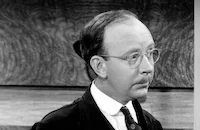
Hobart Cavanaugh
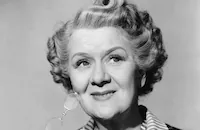
Ruth Donnelly
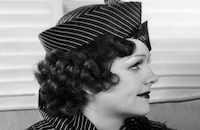
Pert Kelton
William Collier Sr.

Sammy White

E. E. Clive
Allen Pomeroy
Robert Middlemass

Joseph Crehan
Charles Teske

Eily Malyon
Dick Dennis
Marie Prevost
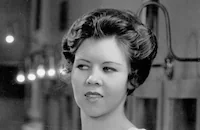
Mary Treen
Leona Mcgenty
Jean Sennett
Victor Bridis
John Marsden
Don Downen
Jerry Fletcher
Al Williams
Bert Morehouse

George Andre Beranger
George Ovey
Earl Tree
Dick French
William R. Arnold
George Riley
Pat West
Milton Kibbee
Bill Archer
Harry Harvey
Curtis Benton
Ted Thompson

Emmett Vogan
Harry C. Bradley
Lillian Lawrence
Bob Perry

Lee Phelps
Billy Coe
Charles Sullivan
Rosalind Marquis
Hal Neiman
Rose Terrell
Earl Askam
Robert Eberhardt
J. Delos Jewkes
Jack Bergman
George Bruggerman
Arthur Thalasso
General Savitsky
Alexander Ikonikoff General
Stuart Holmes
Peter Seal
Perc Teeple

Paul Panzer
Leo White
Georgie Billings
Ted O'shea
John Lince
Josephine Allen
Marie Wells
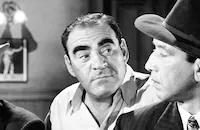
Ralph Dunn
Tex Brodus
Victoria Vinton
Herbert Ashley
John T. Murray
Joseph Cunningham
Crew
Earl Baldwin
George Barnes
Sam Bischoff
Bobby Connolly
Laird Doyle
Al Dubin
Leo F. Forbstein
Robert Haas
Ray Heindorf
William Holmes
Dick Mayberry
Orry-kelly
George Turner
Harry Warren
H. C. Witwer

Film Details
Technical Specs

Award Nominations
Best Dance Direction
Articles
Cain and Mabel
Over at Warner Bros., Hearst did exert his considerable influence during the casting phase of Cain and Mabel, the story of a musical star's romance with a heavyweight boxer. Jealous of Warner Bros. contract star Dick Powell whom Marion Davies found attractive, Hearst vetoed the popular young crooner from being cast as the film's second male lead. The part went to Allen Jenkins instead. Hearst's insistence on casting Clark Gable as a prizefighter turned out to be a very ironic move. When Davies was preparing to cast Five and Ten (1931), Irving Thalberg suggested a young Clark Gable for the society man part. Davies insisted on Leslie Howard. To placate Thalberg, Davies agreed to view Gable's screen test. After the test ended, Davies flatly rejected Gable on the grounds that the virile young actor "looks like Jack Dempsey," and that it was impossible to put him in a role like that of a sophisticated man-about-town. Thalberg told Davies that she would be sorry since Gable would some day be a sensation. Only when the lights came up in the screening room did Davies and Thalberg notice a silent Gable sitting quietly behind them. Thalberg insisted he wasn't aware of Gable's presence but he did reiterate that Gable wanted the part and that he would be good in it. Davies stuck to her guns and reassured Thalberg that her refusal was not personal. She just didn't think Gable fit the part, an opinion that stuck with Gable. Days later, he ran into Davies on the MGM lot and reintroduced himself with, "I'm the pug, remember me? I'm Jack Dempsey."
After all that, Davies changed gears the next year for another MGM production called Polly of the Circus (1932). She now insisted that Gable be cast as a minister, a part that Irving Thalberg thought was all wrong for Gable. Davies' won out in the end, even though Gable still harbored resentment towards her for the former slight of a year earlier. On the set of their second film together, Gable asked Davies, "Do I still look like a prizefighter?" Davies tried to convince him that her earlier rejection of him was just business and that it turned out to be the wrong decision. Ironically, once it came time to finally cast Gable as a Jack Dempsey-type prizefighter in Cain and Mabel, the critics almost universally agreed it was as a classic case of miscasting. Newsweek reported that, "Clark Gable and Marion Davies fit in this picture like a fat hand squeezed into a small glove. Too much talent for such a skimpy, thinly woven plot that unravels in a trite series of moments rather than a well constructed tale."
While Cain and Mabel is admittedly no masterpiece, the film still has a great deal of charm, the musical numbers are lavish, and Davies' flair for comedy is in full flower here. If you look closely in one scene, you can also see a hilarious technical gaffe. While hundreds of extras are moving around Davies in the sequence with the huge white pipe organ, you can spot a studio workman walking across the stage at the height of the number. The error was noticed later in the editing room when it was too late to do retakes of the scene.
Director: Lloyd Bacon
Producer: Hal B. Wallis, Jack L. Warner
Screenplay: Laird Doyle, H.C. Witwer
Cinematography: George Barnes
Music: Al Dubin, Harry Warren, Bernhard Kaun (uncredited), Heinz Roemheld (uncredited)
Art Direction: Robert M. Haas
Cast: Marion Davies (Mabel O'Dare), Clark Gable (Larry Cain), Allen Jenkins (Dodo), Roscoe Karns (Aloysius K. Reilly), Walter Catlett (Jacob "Jake" Sherman), Robert Paige (Ronny Cauldwell).
BW-90m. Closed captioning.
by Scott McGee

Cain and Mabel
Quotes
Trivia
Notes
A news item in April 18, 1936 Daily Variety states that the scheduled start date was pushed back because a suitable leading man had not been found.

Miscellaneous Notes
Released in United States 1936
Released in United States 1936














